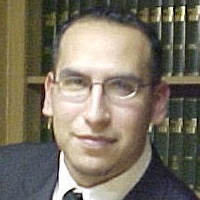San Antonio Juvenile Law Lawyer, Texas
Sponsored Law Firm
-
 x
x

Click For More Info:
-
Stephanie Alvarado Attorney at Law
100 N Central Expy Suite 805 Richardson, TX 75080» view mapCriminal Defense Law Fighting Against Unjust Prosecution
Attorney Stephanie Alvarado is there for her clients when help is needed right away. Helping people charged with crimes in Texas for over 20 years.
800-988-5471
Sam H. Lock
✓ VERIFIEDCriminal, Juvenile Law, White Collar Crime, Federal Trial Practice, DUI-DWI
San Antonio Criminal Defense Attorney | Bexar County DWI Lawyer
Mr. Lock began his career in civil litigation and then opened the doors of The Law Office of Sam H. Lock in 2000. For more than 10 years, he has been ... (more)
Law Offices of Jesus R Lopez
✓ VERIFIEDCriminal, Divorce & Family Law, Wills & Probate, Adoption, Juvenile Law
Originally from Del Rio, Texas, Jesus is fluent in both Spanish and English. With an undergraduate degree in Economics and International Business from... (more)
FREE CONSULTATION
CONTACTFrank D. Sandoval
Juvenile Law, Estate Planning, Family Law, Consumer Bankruptcy, Business
Status: In Good Standing Licensed: 32 Years
FREE CONSULTATION
CONTACTFREE CONSULTATION
CONTACTRobert Tylden Shaeffer
Juvenile Law, Misdemeanor, DUI-DWI, Criminal
Status: In Good Standing Licensed: 34 Years
Kevin Lloyd Collins
Juvenile Law, Business, DUI-DWI, White Collar Crime, Criminal
Status: In Good Standing
Robbie Lea Ward
Juvenile Law, Domestic Violence & Neglect, , DUI-DWI, Criminal
Status: In Good Standing Licensed: 23 Years
 Stephanie Alvarado Richardson, TX
Stephanie Alvarado Richardson, TX Practice AreasExpertise
Practice AreasExpertise


